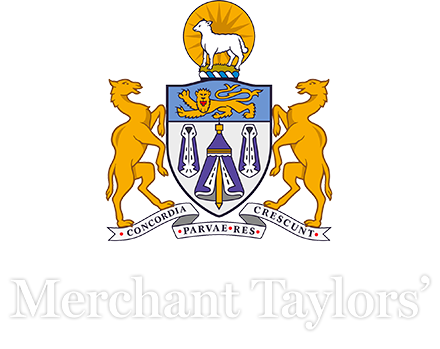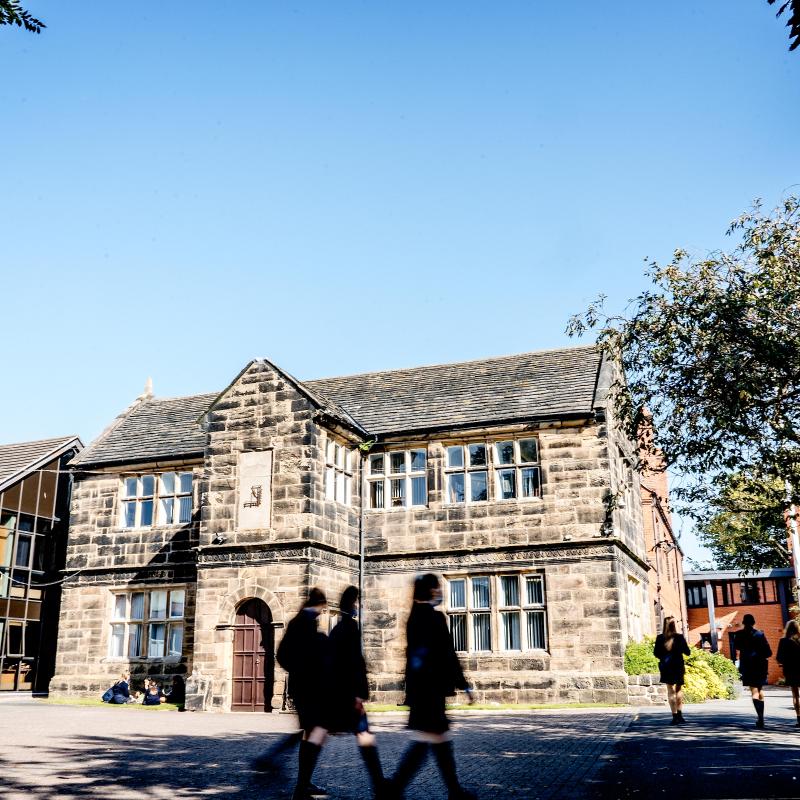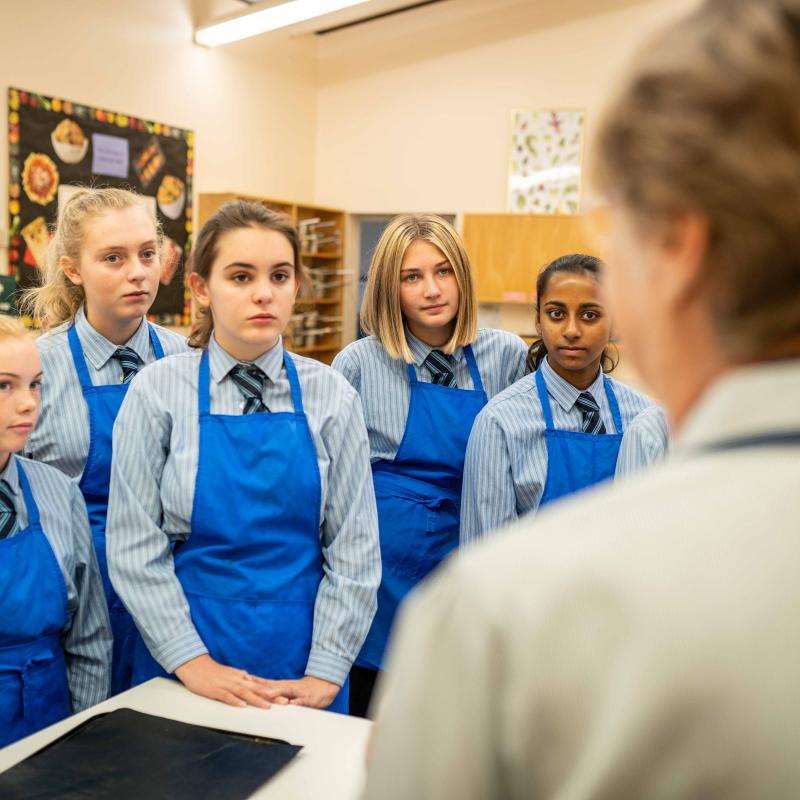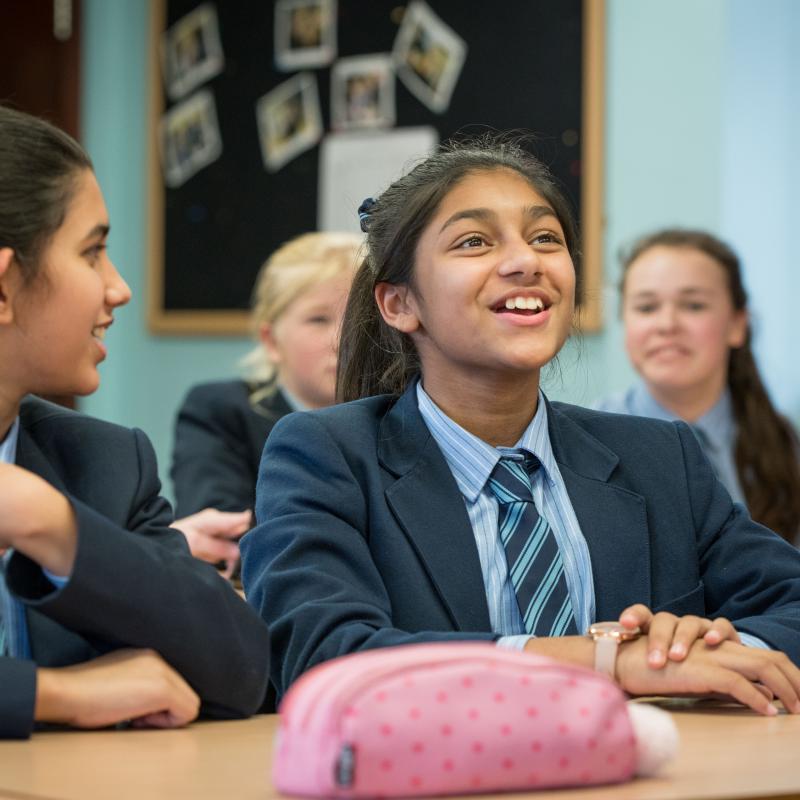Geography
Geography is a lively and popular subject at our school. It is taught in a suite of three rooms in the Lower Thompson Building and has access to the adjacent garden.
The subject is taught in a variety of ways from the formal to role play, group work, and decision-making exercises. Girls are encouraged to use ICT in their investigative work and coursework, whilst fieldwork plays a prominent role in all years.
The opportunity for fieldwork and practical experience is an important part of the learning experience and the department is committed to providing a varied programme that involves work at home and abroad.
Lower School
The Key Stage 3 course for the Lower School covers a range of both physical and human topics from the local to the international scale and reflects the breadth of the subject.
Emphasis is placed upon skills such as map-reading and ICT and independent learning is encouraged through the use of research projects.
Girls receive an insight into the relationships between people and the environment and how each affects the other and to comprehend the concept of sustainable development. Geography enables students to foster a sympathetic understanding of some of the major issues of social concern such as poverty, climate change and population problems.
We regularly take trips to Ingleborough, White Scar Caves and Old Holly Farm, as well as to Crosby village and Formby beach.
GCSE
Geography at GCSE follows the AQA specification and builds on the skills, knowledge and understanding picked up in the lower school.
The subject is a popular choice at GCSE due to the variety of topics covered and the wide range of skills developed and we are proud of our excellent record of exam results.
Girls develop knowledge and understanding of contrasting human and physical environments and begin to understand the ways in which people interact with each other and with their environments, as well as understanding different communities and cultures at a variety of scales.
Fieldwork allows girls to carry out a number of skills based on observation, collection, representation, analysis, interpretation and use of data including maps and photographs. GCSE students visit various locations in the Lake District to collect data for the Geographical applications paper.
Assessment is via three exam papers completed in the summer of Year 11.
A Level
Geography is an exciting, dynamic and challenging subject to study at A Level, helping students to acquire and apply knowledge and understanding of physical and human processes and appreciate how places, environments and issues change.
It provides an understanding of how decisions are made about the use and management of resources and environments and allows students to clarify and develop their own values and attitudes in relation to geographical issues and questions.
The A-Level course comprises three Physical Geography topics (Glacial Systems and Landscapes, Water & Carbon Cycles, and Hazards) and three Human Geography topics (Changing Places, Population and the Environment, Global Systems and Global Governance). Each topic group is worth 40% of the mark.
Girls must also complete a fieldwork investigation of between 3,000 and 4,000 words on any aspect of the specification, worth 20% of the overall marks available.
Geography works well with a variety of science-based and humanities subjects. Global Economics and Systems has been introduced to the current specification linking well with Economics. We take great pride in recent results and the number of Sixth Form geographers who move on to study the subject or similar pathways at leading universities.
A-Level students participate in a residential trip to Blencathra Field Studies Centre near Keswick and also visit Liverpool as part of their studies on Changing Places. We are also committed to enriching the course with lectures from leading academics and regular overseas trips, including a bi-annual trip to Iceland.




